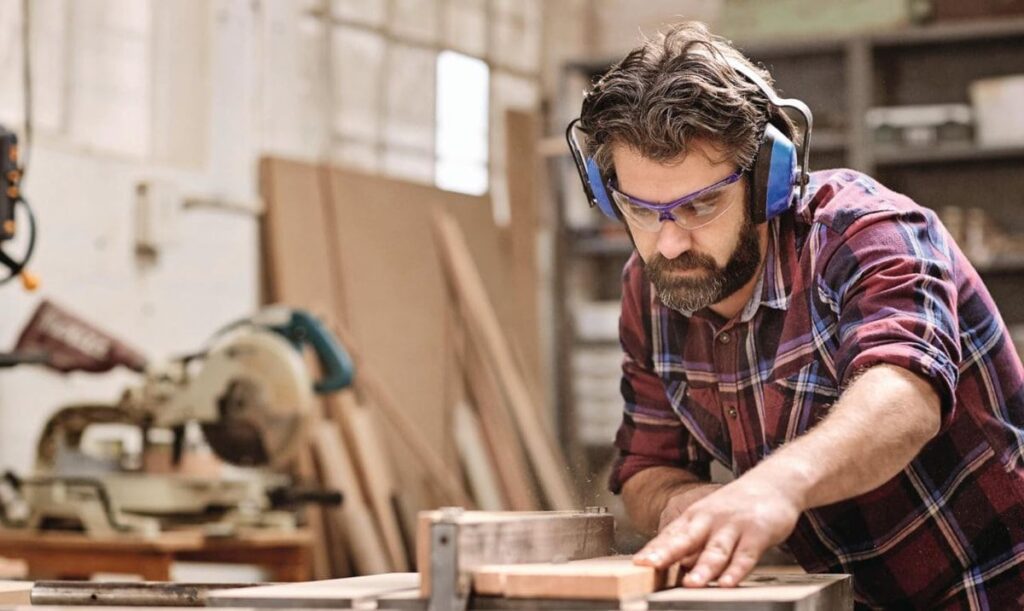Hazards when sawing, grinding and cutting
Safe DIY starts with protective equipment. To prevent accidents, here are the most important tips.

Drilling dust can cause cancer and can literally be fatal to the eye. When chips fly, noise pollution occurs and sharp-edged objects are handled, do-it-yourselfers should also protect themselves with aids.
Protect hands well
We are constantly active with our hands. Protective gloves save hands from painful injuries. Important when buying:
- For work with sharp-edged tools or materials, there are protective gloves with the standard designation EN 388. These gloves protect against mechanical hazards such as cuts or stabs.
- For cleaning work and when handling chemicals, protective gloves with the standard designation EN 374 select
- Winterproof, sturdy gloves protect against the cold and the elements.
- Get advice: The choice is large.
- Important: Do not wear gloves if there is a risk of getting caught in moving machine parts (e.g. drilling machines).
So that nothing goes in the eye
Flying wood or metal chips, dust and splashes: safety goggles ensure that the eyes remain intact.
Important when buying:
- Choose glasses that fit snugly and seal well.
- For work in the sun, there are safety glasses with UV protection and tinting.
- Buy a pair of glasses with the standard designation EN 166.
- Important: Normal glasses for the correction of defective vision or contact lenses do not have a protective effect, so for people who wear glasses there are special over-glasses.
Hearing belongs protected
It gets loud when working with machines. Hearing protection prevents damage to hearing. Important when buying:
- Choose hearing protection that fits perfectly and is designed for the activity and noise level.
- Get advice: Hearing protectors are available with different attenuation values.
- Special models are available for children.
- On the standard designation EN 352 pay attention.
Against congestion on the lungs
Do-it-yourself projects generate dusts or toxic fumes. The lungs are protected with a respirator. Important when buying:
Dust or vapors: Get advice. Depending on the area of application and the type of pollutant, a different respirator is required.
Source: AAIB









